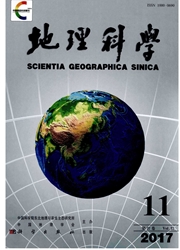

 中文摘要:
中文摘要:
针对目前空间生产的研究中存在的2个潜在问题——对理论运用的简单化和理解的宽泛化,在国内外现有的相关研究的基础上,对哈维和福柯关于空间生产的理论或思想重新进行了梳理。研究认为,哈维和福柯都对空间给予了长期关注,并发展了2种互补的、值得借鉴的研究方法;总体上,资本、阶级和上层建筑是哈维的空间生产理论框架的3个要素,而工具性空间、生产性空间和空间合理性则构成了福柯的空间研究的三大视角。尽管这2个视角存在很大差异,但是都强调空间生产背后的不平衡逻辑并追求主体性的解放,从而为未来研究的深入提供了方向;最后,结合福柯对知识一权力的讨论,呼吁建立一个更为求真、自省的学术体系。
 英文摘要:
英文摘要:
Given two potential issues in the current studies in the production of space, i.e. the simplism in appli- cation and mysticism in implication, this article provides a concise sketch of the theories or thoughts of David Harvey and Michel Foucault in the production of space based on the existing relevant researches. It is argued that both Harvey and Foucault pay much attention to the issues of production of space and spatiality from two illuminating perspectives which are complementary with each other. Generally, this article sorts out 3 main ele- ments in Harvey' s researches, i.e. capital, class and superstructure; by the same token, three perspectives are summarized in Foucauldian' s studies, i.e. instrumental spaces, productive spatalitis and spatial rationality. Be- sides the disparities in perspectives, both of them emphasize heavily on the uneven logics behind the processes of production of space and pursuit the emancipation of human beings. We also examined the necessity and fea- sibility to introduce these figures into the studies in China; some promising fields for future studies are provid- ed after brief summarization and comparison; a freer and more introspective academic atmosphere of current Chinese human geography is advocated based on Foucault' s discussions on power-knowledge and truth.
 同期刊论文项目
同期刊论文项目
 同项目期刊论文
同项目期刊论文
 期刊信息
期刊信息
